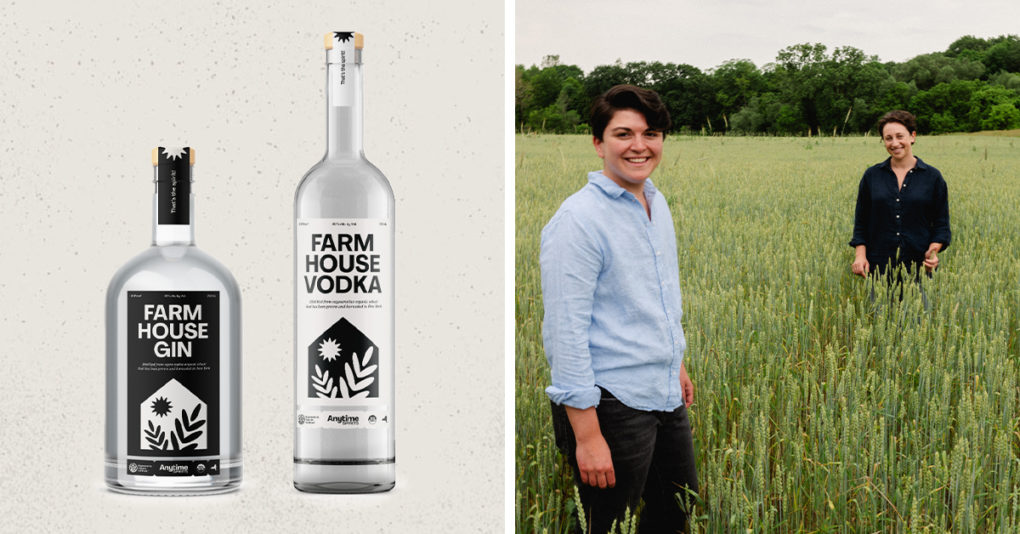
Having introduced the canned cocktail Anytime Spritz back in April, founders Maddy Rotman and Taylor Lanzet announced on Tuesday the release of new vodka and gin expressions touted as the first-ever commercial spirits to earn regenerative organic certification (ROC).
Seeking ways to use transparent, farmer-driven and locally sourced ingredients to make more sustainable cocktails, Rotman and Lanzet partnered with the Regenerative Organic Alliance (ROA), New York-based Breathe Deep Farm and Maryland craft distiller McClintock Distillery to certify Anytime’s Farmhouse Gin and Vodka.
Prior to launching Anytime, Rotman was most recently the head of sustainability at Imperfect Foods, while Lanzet comes from D2C brand Daily Harvest where she was senior director of strategic sourcing. The friends are aiming to apply that experience to channel the rising interest in sustainable agriculture into spirits.
Regenerative has slowly become a buzzword in alcohol thanks to natural and biodynamic wine, but remains a small segment within spirits. That may be starting to change. In October, Diageo announced two regenerative agriculture programs for scotch and tequila as part of the company’s $1.2 billion investment into carbon reduction. Other industry figures – like the actors behind bourbon brand Brother’s Bond – have been sounding the alarm on depleting topsoils, but haven’t been able to fully load up their barrels with regenerative grains.
That’s partially because the ROA has certified more than one million acres of land globally, but only 1% of U.S. grain production is even certified organic, according to ROA’s executive director Elizabeth Whitlow.
Anytime’s co-founders said the certification has already won them attention from bars and restaurants who are using sustainable meat and produce, and who now need to bring that same ethos to the bar. Anytime Farmhouse Vodka and Farmhouse Gin have SRPs of $39.99 and $44.99 respectively, making them expensive cocktail additions, but part of the ultra-premium segment that has fared better on-premise this year than in stores.
They also cited the Whole Foods Market 2022 impact report, which highlighted an onboarding of 70 certified regenerative products along with another 200 that mention “regenerative” on the label. The grocery giant also forecasted climate-conscious callouts as a top 10 trend for 2023.
As retailers search for regenerative products and brands look to invest in regenerative work, Lanzet said there remains a disconnect between brands seeking the certification versus just using the word regenerative.
“If you use the word regenerative you emphasize soil health and likely use cover crops or crop rotations but this might still fall under conventional agriculture,” Lanzet said.
The certification prohibits GMOs or gene editing, prohibits synthetic pesticides or herbicides, requires remediation practices such as pollinator habitats, and other policies in animal operations that the word “regenerative does not,” she added.
“We know that the rise of regenerative will be faster than organic because the consumer understands that regenerative organic agriculture practices are needed to fight the climate crisis, they know that regenerative aligns with their values,” she said.
Lanzet is convinced that consumers, especially Gen Z and millennials, will be willing to spend on products that align with those values— and as younger groups gain more purchasing power, organic and regenerative farming will grow.
“As we scale Anytime Farmhouse, we will expand through regional grain shed development across the U.S. that will over time transform the American farm landscape,” she said.
The new vodka, gin and canned spritzes are available in New York and California.